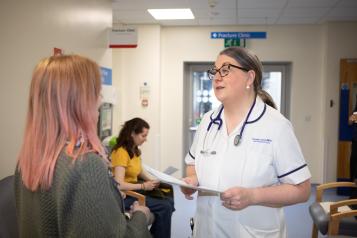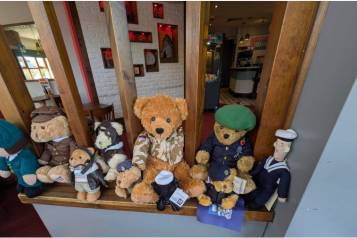What to do if you need an Urgent Care in Dudley

What is the difference between urgent care and emergency care?
Urgent care: Provides help for an illness or injury that needs attention quickly but is not a life-threatening situation.
Emergency care: Provides treatment for life-threatening conditions. If someone is in immediate danger because of an injury or a severe health problem, they need emergency care quickly. This is available at the Emergency Department.
Where can I find urgent care services in Dudley?
The Urgent Care Centre is accessed via the Emergency Department at Russells Hall Hospital.
On arrival, a streaming nurse will ask you for your name and reason for attending. The nurse will then decide where the best place is for you to be treated, either in the Urgent Care Centre or the Emergency Department. You cannot access the Urgent Care Centre via any other route.
What can be treated in urgent care?
Some of the conditions treated at the Urgent Care Centre at Russells Hall Hospital include:
- Minor burns and bites
- Fever and raised temperatures
- Sickness and vomiting
- Irritation and rashes
- Mild breathing difficulties
- Cuts and scrapes
Do I need urgent care?
Urgent Care provides help for conditions that need attention quickly, but are not life-threatening.
It can be difficult to decide where to go for help when you’re hurt or feel very ill. To help you make the right choice, you can contact NHS 111: a 24-hour service where trained staff assess your condition and direct you to the best service to meet your needs.
Call 999 for the following:
- signs of a heart attack
chest pain, pressure, heaviness, tightness or squeezing across the chest - signs of a stroke
face dropping on one side, can’t hold both arms up, difficulty speaking - sudden confusion (delirium)
cannot be sure of own name or age - suicide attempt
by taking something or self-harming - severe difficulty breathing
not being able to get words out, choking or gasping - heavy bleeding
spraying, pouring or enough to make a puddle - severe injuries
after a serious accident - seizure (fit)
shaking or jerking because of a fit, or unconscious (can’t be woken up) - sudden, rapid swelling
of the lips, mouth, throat or tongue - labour or childbirth
waters breaking, more frequent intense cramps (contractions), baby coming, or just born
British Sign Language (BSL) speakers can make a video call to 999.
Deaf people can use 18000 to contact 999 using text relay.
This information was accurate as of 8th May 2025. This article is due to be reviewed on 8th May 2026.


